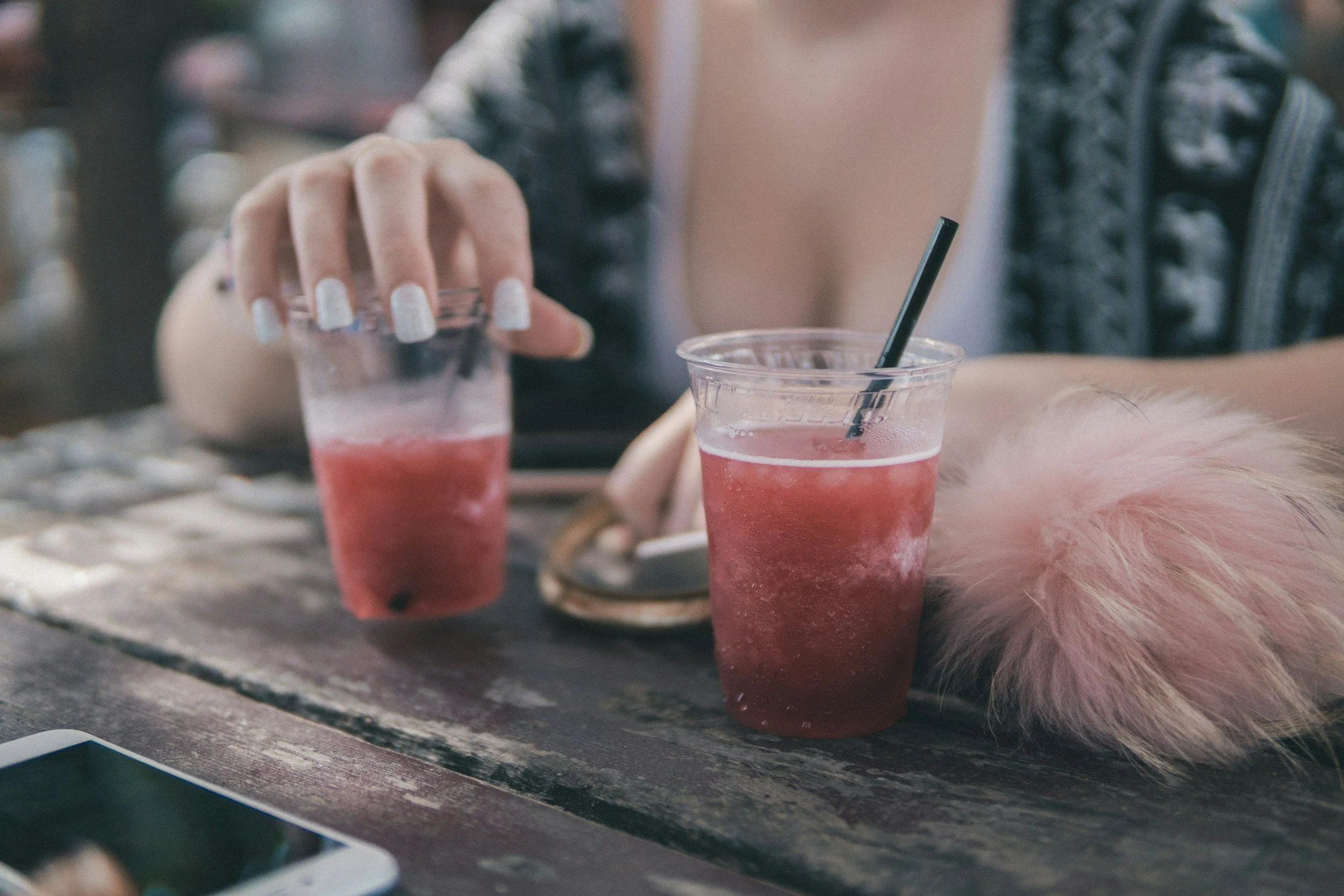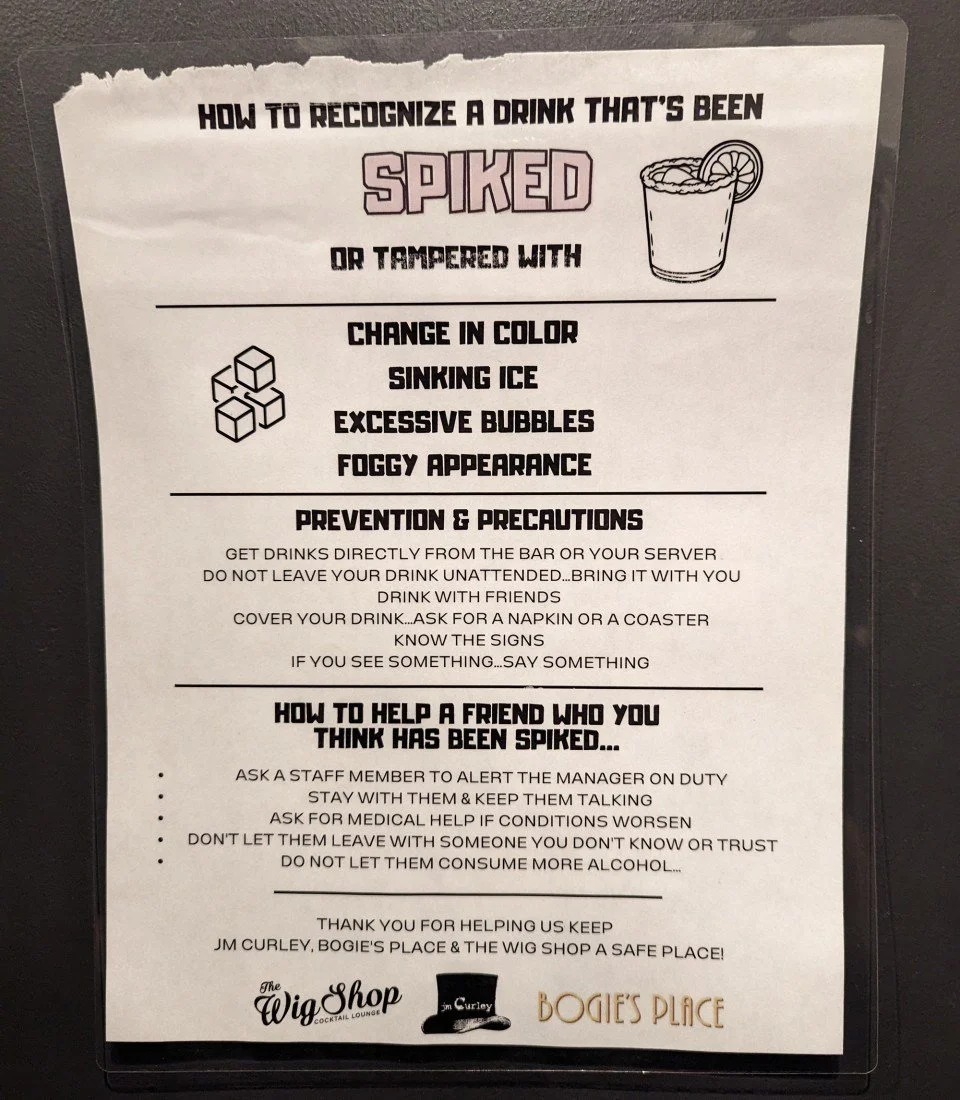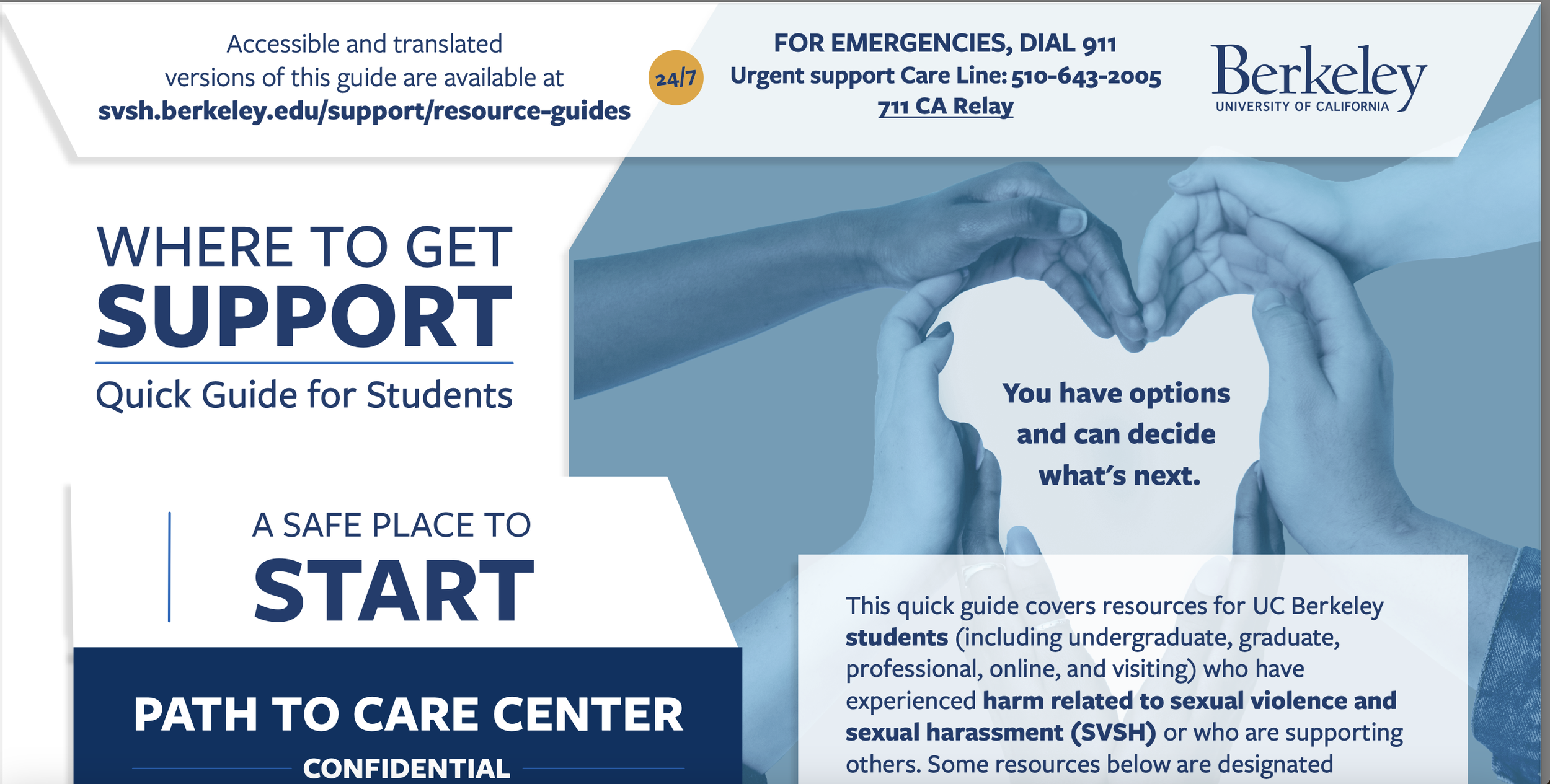Campus warns of drug-facilitated assaults
Earlier this week campus alerted students to “multiple incidents” of drug-facilitated sexual assault and aggravated assault that occurred Friday night at a residence on the 2300 block of College Avenue, south of main campus. According to the Sept 17 WarnMe, the assaults were committed on Friday, Sept 13, 2024, “via poisoning (commonly referred to as ‘spiked drinks’)” and had “recently” been reported to the university.
The City of Berkeley Police Department is investigating. The WarnMe states: “If you have any information about this crime, or if you know of any similar incidents please contact: Berkeley Police (510) 981-5900” (red-text emphasis added by SafeBears).
UNIVERSITY HEALTH SERVICES NOT HIGHLIGHTING ‘SPIKED DRINKS’ RISK
PartySafe at Cal is a Berkeley University Health Services action campaign that “works to reduce alcohol-related risks and harm by reaching individual students, the student body as a whole, and the greater college community.” The UHS PartySafe website contains a lot of great resources, including a recently updated Toolkit and Infographics providing easily digestible information on such vital topics as how to recognize alcohol poisoning, bystander intervention, and how to obtain fentanyl testing strips and Narcan.
👉 👉 Unfortunately, University Health Services does not appear at this time to be highlighting non-consensual drugging — what it is, strategies for avoiding it, and how to respond if you think it’s happened to you. SafeBears uncovered a UHS PartySafe information sheet on this topic — but it’s 7 years old and is not easily discoverable on any berkeley.edu website. Additionally, the UHS PartySafe Toolkit’s detailed checklists for party hosts and guests fail to include any advice on recognizing and preventing illegal drugging, and the issue is mentioned only briefly toward the end of the 18-page document.
👉 👉 Given what occurred last week, UC Berkeley students and parents need information now on non-consensual drugging. SafeBears is therefore presenting this overview, while also calling on UC Berkeley to distribute up-to-date messaging to campus affiliates. To facilitate wide awareness, SafeBears urges multiple university departments to participate, including: University Health Services, the Office for Prevention of Discrimination and Harassment (Berkeley’s Title IX office), UCPD, Student Affairs, and PATH to Care Center.
UPDATE — On Sept 19, 2024, at 5:25 pm, about 4 hours after SafeBears published this blog post, UC Berkeley sent a WarnMe Community Advisory about Drug Facilitated Sexual Assault. “DFSA” is an umbrella term that includes both “1) when the perpetrator takes advantage of a someone’s voluntary use of drugs or alcohol and, 2) when the perpetrator intentionally forces a victim to consume drugs or alcohol with or without their knowledge,” according to RAINN, which describes itself as the nation’s largest anti-sexual violence organization.
This SafeBears blog post focuses specifically on the issue of involuntary or non-consensual drugging, which is what appeared to be the focus of the Sept 17 WarnMe (“spiked drinks”).
UC Berkeley does not maintain an archive of WarnMe alerts. If you missed this one, we saved screenshots of it here.
City of Cambridge, Mass., Public Service Announcement
WHAT ARE PREDATORY DRUGS?
Predatory (“date rape”) drugs, often used to incapacitate someone for sexual assault, are illegal and dangerous. These drugs are typically powerful depressants or tranquilizers that can be mixed with alcohol, often without altering the drink's appearance, taste or smell. They generally act very quickly, with effects felt within 15 to 30 minutes.
Intentionally giving a drug to someone without their knowledge or consent is a criminal offense in California under penal code section 222 (drugging to commit a felony) and/or section 347 (poisoning).
While many substances can be used, some of the most common include:
- Rohypnol "Roofies": These often come as pills that dissolve into liquids, possibly (but not always) turning a clear liquid bright blue or a dark liquid cloudy. Their effects, similar to heavy intoxication, include weakness, fatigue, slurred speech, loss of coordination, and impaired vision.
- GHB: This drug can be found in liquid, powder, or pill form, and it might only impart a slightly salty taste to the drink. GHB's effects can include relaxation, drowsiness, dizziness, nausea, and in severe cases, seizures, breathing difficulties, and loss of consciousness.
- Ketamine "Special K": Usually found as a liquid or white powder, Ketamine can cause hallucinations, distorted perceptions, a feeling of being detached from reality, and heart palpitations.
Additionally, alcohol itself can be a predatory drug, but this blog post focuses on substances that can be mixed with drinks, as that is the scenario described in the recent WarnMe.
👉 👉 You can read more about GHB, Rohypnol and Ketamine in this infographic from Roger Williams University.
A sign posted on the back of bathroom-stall doors at Boston bar JM Curley in January 2023 warned patrons about drink spiking. / Photo by Rachel Leah Blumenthal
WHAT CAN STUDENTS DO TO REDUCE RISK?
Sexual assault or other crime is never the victim’s fault. With that said, there are some strategies students can use to look after themselves and their friends.
- Be Aware: Watch out for suspicious behavior, such as individuals lingering around drink areas or tampering with beverages.
- Control Your Drinks: Order your drinks personally and watch the entire preparation process. Never leave your drink unattended. Opt for sealed beverages whenever possible, and avoid drinks from shared containers.
- Set Boundaries & Communicate: Establish and communicate a drink limit with a trusted friend. This allows them to help you stay within a safe range and recognize if your level of intoxication seems disproportionate to your consumption.
- Report Suspicions: If you suspect that drinks have been tampered with, immediately inform event organizers, security personnel, or the authorities. Remove the suspected beverages from circulation.
👉 👉 The Stanford University Title IX website has good prevention advice for both party guests and hosts.
What about testing strips and drink covers?
SafeBears does not at this time endorse any specific products, and notes that many prevention strategies, as outlined above, are free. With that said, drug testing devices have been endorsed by California lawmakers, in the sense that as of July 1, 2024, California bars must by law make them available to patrons. As reported by Cal Matters, additional anti-drink-spiking bills are currently pending in the California Legislature, including one that would require bars to offer drink covers upon request.
Please note that common drug testing strips available from retailers like Amazon appear to test for GHB and Ketamine only, NOT Rohypnol. Drink covers — which vary in design and price — can add a layer of protection, but should never be used as an excuse to leave a drink unattended.
WHAT TO DO IF YOU OBSERVE SIGNS OF DRUGGING IN SOMEONE
- Stay Alert: Be attentive to signs like sudden and excessive intoxication, slurred speech, confusion, difficulty breathing, loss of coordination, and unusual behavior.
- Take Immediate Action: Approach the individual, assess their condition, and ensure their safety.
- Get Help: Notify event staff, security, or contact emergency services (911) if the situation appears serious. Do not leave the person alone.
The PartySafe at Cal 2017 information sheet — “What if I think I’ve been drugged?” — is available here.
WHAT TO DO IF YOU THINK YOU OR A FRIEND HAVE BEEN DRUGGED
- Medical Attention First: Go to a hospital emergency room or urgent care facility as quickly as possible. Inform the medical professionals that you suspect drugging so they can provide appropriate care and testing. If possible, and only if safe to do so, collecting a urine sample and storing it safely before going to the hospital can be beneficial, as these drugs often leave the system quickly.
- Reporting to Law Enforcement: Drugging someone without their consent is a crime in California. Filing a report with law enforcement is crucial for evidence collection and potential legal action. While it's important to note that involving law enforcement might trigger mandatory reporting in some cases, you have the right to pursue legal action and seek justice.
- Preserving Evidence: Refrain from cleaning up or altering the location of the incident to preserve any potential evidence for a police investigation.
- Seeking Confidential Support for SVSH: Remember, you're not alone. Various on-campus and off-campus confidential resources can offer support, guidance, and help you cope with the experience.
A quick overview of UC Berkeley SVSH resources:
PATH to Care Center – a safe place to start for confidential support
Urgent SVSH Support Care Line, available 24/7 – 510-643-2005
For after hours medical assistance, call the University Health Services Advice Nurse at 510-643-7197
MORE INFO HERE — Where to Get Support Quick Guide for Students




